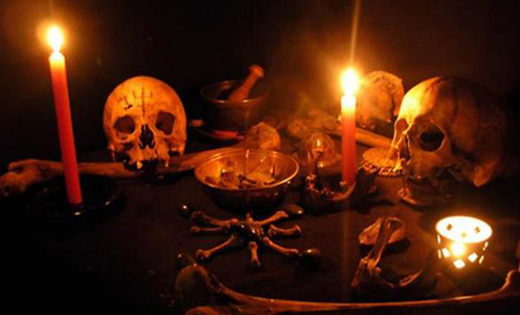
Karnataka anti-superstition law: what is banned, what isnít in final
mangaloretoday.com/yahoo
The inclusion of practices considered to have Vedic origins, such as Vaastu and astrology, among practices to be banned was opposed by various groups including leaders of the BJP.
A controversial anti-superstition law in Karnataka, which was passed during the tenure of a Congress government in a diluted form as the Karnataka Prevention and Eradication of Inhuman Evil Practices and Black Magic Act, 2017, and received the assent of the Governor on December 6, 2017, was formally notified by the current BJP government on January 4, 2020, said a senior official of the state Social Welfare Department. The law has been piloted by the Social Welfare Department, which is headed by Deputy Chief Minister Govind Karjol, a member of the Dalit community that bears the brunt of several irrational practices.

The earlier drafts
The law, which was initially drafted as the Karnataka Anti Superstition Bill, 2013, was a pet project of former Congress Chief Minister Siddaramaiah.
An expert panel from the Centre for the Study of Social Exclusion and Inclusive Policy of the National Law School of India University (NLSIU) first presented a draft Bill, outlawing over a dozen superstitious practices in 2013. The model Bill held human dignity as its central tenet and sought eradication of irrational practices found in different communities. The first draft made practices like inflicting self-wounds and conversion through bribery illegal.
However, soon after the draft came into the public domain, it attracted resistance - from the then opposition BJP, the Janata Dal (Secular) and religious leaders. The BJP called it anti-Hindu, and a Lingayat seer called it an attack on the Lingayat community, the single largest in the state. Even senior Congress leaders questioned the need for the new law.
Some of the proposals opposed by religious leaders and political parties in the early draft were the ban on practices such as the carrying of priests in palanquins, worshipping the feet of religious leaders, and Made Snana practised in the Dakshina Kannada region where Dalits roll over the remains of food consumed by upper castes. There was also political opposition for a proposed ban on the practice of Vaastu, astrology and palmistry.
Drafts of the Bill put out by the Congress government in 2014 and 2016 also faced opposition. The inclusion of practices considered to have Vedic origins, such as Vaastu and astrology, among practices to be banned was opposed by various groups including leaders of the BJP.
The current version
A Bill with sizable consensus across the political spectrum finally evolved in 2017. The practice of Vaastu, astrology, pradakshina or circumabulation of holy places, yatras, parikramas performed at religious places were kept out of the purview of the law.
Made Snana was banned under the law with respect to having Dalits roll over left over food. The practice has now been modified to be voluntary and not involving leftover food.
Practices such as barring menstruating women from entering houses of worship and their homes, coercing people to take part in fire-walks, and beating up people by declaring them evil, are among the irrational practices that have been banned under the 2017 law. A total of 16 practices have been banned under the law.
The penalties
The law stipulates “imprisonment for a term which shall not be less than one year but which may extend to seven years and with fine which shall not be less than five thousand rupees but which may extend to fifty thousand rupees”, as punishment for violations.
The law is to implemented by the state police with the appointment of vigilance officers under the law at police stations.
Though the Congress facilitated the passage of the Karnataka Prevention and Eradication of Inhuman Evil Practices and Black Magic Act, 2017 and created rules, the law was not notified until January 2020 since there were concerns of the political fallout of the implementation of the law in the run up to the 2018 Assembly elections — which the party eventually lost.
The BJP, which was able to get much of its concerns over the law addressed during the drafting phases, has now notified the law and put itself in a position to implement the law according to rules framed under the law.